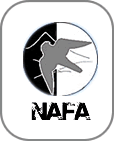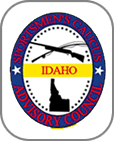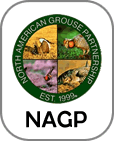Letter from George Allen USFWS
Author: George Allen
29 August 2008
Folks:
I have done my best for a number of years to try to improve cooperation with falconers and propagators, to understand your issues, and to write better regulations. Recently, I've received enough questions that I feel that I should respond to a couple of issues and to an article about our work on regulations.
First, I have been asked why there is language against private ownership in the Environmental Assessment that we completed last year. The word "private" only appears in the assessment only in "private consulting firms." "Property" appears only once - in a comment on the Draft EA. The word "ownership" does not appear at all, nor does the word "rights." The word "own,9 as used in referencing private property, is not used in the assessment. Possession of raptors is addressed several times - mostly to point out that possession is authorized under regulations implemented under the MBTA. The assessment does state "The Service would retain responsibility for stewardship of raptors listed under 50 CFR Part 10, even though we would authorize states to take over the administration of falconry permits." We responded to a comment about this language in the Final EA. This stewardship does not take away private property rights, so I see no problem with this statement.
The environmental assessment was done to assess the effects of take from the wild on raptor populations. I do not believe that it infringes on private property rights.
Second, apparently it has been said that I was upset when I left the NAFA meeting last year because I had expected NAFA to agree with the private property language in the proposed raptor propagation regulations. It was said that I had been told before the meet that the NAFA membership and/or the Board had supported the language on private property in the proposed propagation regulations, and that I was dismayed when I did not receive support for that language. Supposedly, I felt that I had been misled by the NAFA Board. Further, I have been told that it has been stated that Ralph Rogers and other Board members had held secret meetings with me to discuss the property rights question.
These assertions are not true. Further, it would have been a courtesy for whoever said these things to have asked me before telling others what I think. As far as I recall, no NAFA Board member or any other NAFA member has ever expressed support for the language in the propagation regulations - nor did I go to Alamosa expecting support for it. I went to talk about peregrine take and to answer questions about our work on the regulations and the falconry Environmental Assessment.
I don't know what private meetings I was supposed to have been part of. I've always welcomed calls and emails from any of you, and as best I could, have met with anyone who wishes to talk about falconry issues. I don't recall participating in any "closed door" meeting, unless you count the Board meeting as one. Even then, all I did was answer questions I was asked and explain what I was doing and how long it would take to complete the new regulations. I don't think the insinuation about private meetings has merit; I have always met with the NAFA Board or Directors when it has been asked of me at a NAFA meet.
More importantly, I attended the open Board meeting in Alamosa, and heard statements about what Migratory Bird Management would do as a response to the William Horn letter - which I assume that most of you know about. Many of the statements that evening were wrong.
What bothered me then, and still does, is that no one questioned those statements. As a guest at the meeting, I felt that I should only respond to questions asked of me. But, those questions were never asked. I am still distressed that I traveled to the meet and was not asked to provide correct information about our activities.
My Chief in Migratory Bird Management had asked me to limit my travel, but I felt it was important to attend the NAFA meet and continue exchanges with you. I left Alamosa questioning whether I should continue to attend the meets.
However, even though I'm bothered by what happened in Alamosa, I'm not angry with NAFA or its members. My dealings with the NAFA Board and NAFA members over the years have been cordial and helpful. I hope that this relationship continues.
Finally, I wish to respond to a recent article that addressed an issue in the falconry regulations. Here is an excerpt from that article, which I hope I have typed correctly.
At the California Hawking Club meet a couple of years ago George Allen of USFWS attended in order to discuss the proposed new regulations to California falconers. When the question was asked why the new requirement to wait two years before a wild taken raptor could be transferred to a breeding project, his response was: regional permit offices wanted this added to the new regulations because they felt that falconers were "using" the falconry regulations in order get them into breeding projects. It seems that while there is no concern here for these transfers to have any negative impact on wild populations and the possession is perfectly logical and legal, some regional permit officials feel "that is not why we issue falconry permits." It is apparent that the USFWS officials who made this suggested addition seem to have lost sight as to their purpose of employment and the purpose of Federal regulations in the first place. Federal regulations exist for legitimate reasons, "big picture"purposes. The authority to federally, manage raptors is provided by the Migratory Bird Treaty Act (MBTA), and the official purpose of this act is "to prevent these birds from becoming rare or extinct." They were not put here simply to create bureaucrat red tape, and make people jump through hoops, or to give regional permit officials something to do in order to justify their government jobs. Federal agencies have been instructed by Executive Orders to create only as much regulation as necessary - NOT as much regulation as possible.
Now with these facts in mind the first thing they should ask themselves before suggesting adding new regulation is "what problem are we trying to solve that is in conflict with our big picture mission?" Had they had their official mission in mind, this addition to the regulation would never have been suggested in the first place. Some of these officials are reminiscent of the nosey old neighbor with too much time on their hands sticking their nose where it doesnt belong. We all want good neighbors but sometimes we must let them know when they cross the line.
I think that this article focuses on the wrong point. I have never said that taking birds under a falconry permit to be used for some other purpose has had any effect on wild populations. In fact, we have gone to great lengths to make it clear that we don't believe that take for falconry or propagation has any such effect.
Our regional biologists and permit examiners were concerned that falconers were using their falconry permits to take birds from the wild and transfer them to propagation permits. I've not agreed with their views on every permits issue, but I agreed with them on this one.
The article stated "Had they [the USFWS] had their official mission in mind this addition to the regulations would never have been suggested in the first place." I did not add the provision "simply to create bureaucracy, red tape, and make people jump through hoops, or to give regional permit officials something to do in order to justify their government jobs." That insulting statement is a distortion of our efforts, but the change does none of those things, anyway.
I submit that we did have our official mission in mind. The point of the regulations addition was not to make the practice of falconry more difficult. Adding this provision to the regulations just made more work for me and made the regulations longer. But falconers were using their falconry permits as a conduit for adding birds to their propagation permits and were going around the review of take for propagation. That is not a biological issue. It is a case of permittees using their falconry permits for a purpose the permits do not authorize. That was the "big picture issue."
Falconers have asked me why we allow people who hold falconry permits to be pet keepers or to keep the birds just to make money at renaissance fairs. Many of you have told me that you don't consider those practices to be falconry. The new falconry regulations will try to address this issue. But, if people keeping raptors under falconry permits to show the birds at renaissance fairs is not right, why is it right for people who hold falconry permits to take raptors solely to use in propagation? Or, to use another example, birds held under education permits must be nonreleasable. Suppose that we changed ttiat provision. What would falconers say if someone with an education permit started flying one of those birds, hunting with it, and representing himself or herself as a falconer? Would his or her education permit suffice?
To protect your interests in the long run, if you have a migratory bird permit you should take or use birds for the activities that your permit authorizes. Taking birds for propagation under the provisions of a falconry permit simply is not doing that. I have always tried to think about the ramifications of such activities on falconry, and I think that opponents of falconry would be happy to make a case of falconers abusing their permits to take birds for propagation, unlikely though I think that is.
I expect to address this issue when I work on revisions of the propagation regulations. However, I view this as a problem that a small proportion of falconers brought on for everyone else.
What I've said here is not an 'official" FWS communication. It is just my response to inquiries I have received and the article that I have seen. I think it is important for folks to know that some of what they hear or read about what we are doing is incorrect.
We do not try to make regulations that are more complicated than necessary or that make things harder for you. We know what our jobs are, and we also know that we have to respond to many interests, in addition to those of falconers, in doing our jobs. And, believe it or not, some of the things we do are to protect the interests of falconers. However, freely handing out insults or comparing those of us trying to make better regulations to Nazis don't make us, or anyone else, feel more favorably about you.
I hope that you and other falconers will let me know if you have questions about what we're doing or why we're doing it. And please, ask me before you tell others what I think.
Regards,
George


